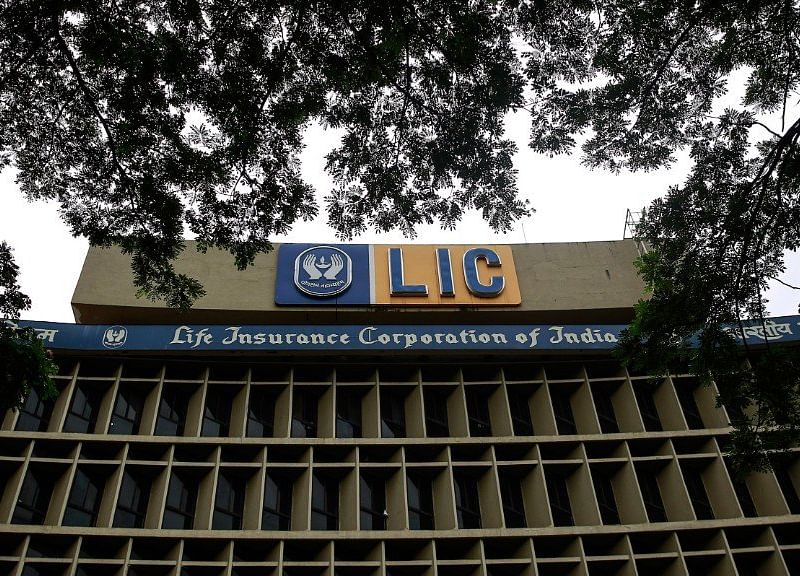NEW DELHI: The Life Insurance Corporation of India, which the government has identified for an IPO, can have a market cap of Rs 3.8 lakh crore to Rs 4.5 lakh crore (Rs 3.8-4.5 trillion), a report said.
According to the research report by Spark Capital, for its return on embedded value (ROEVs) and growth, LIC can be fairly valued at 1-1.2 times its enterprise value (EV), which can translate into a market capitalisation of Rs 3.8-4.5 trillion.
For financial year 2020, enterprise value is estimated to be Rs 3.2 trillion. “With higher surplus sharing in par and lower protection, we expect value of new business (VNB) margin of LIC to be 10-11 per cent,” Spark Capital said.
The government, in its budget in February 2020, expressed intention to list LIC, the largest and oldest life insurer with a balance sheet size of over Rs 32 trillion, in the current fiscal.
According to the report, the implicit sovereign guarantee and productive distribution aided growth with the industry. LIC enjoys implicit sovereign guarantee and has the most productive agency channel. A combination of both has aided it to maintain growth in-line with the industry.
“This growth is commendable as LIC has largely exited linked products since the promulgation of ULIP norms in FY11. The bulk of the private insurers’ growth during FY14-19 was ULIP-led. Hence, we believe, in the current environment where the ULIP demand is weak, it shall report better growth than private insurers and increase market share,” the report noted. Historical data suggests LIC gains market share when ULIP demand is weak, it said.
The report notes LIC is a behemoth that maintained a balanced growth driven by value and volume and there is significant scope to improve ticket size. Unlike a few large private peers, LIC’s individual annualised premium equivalent (APE) growth in the last 5 years was driven by both an increase in the ticket size (ATS) and number of new policies.
“However, the LIC’s average individual APE per policy at Rs 14,000 is significantly lower versus private insurers’ Rs 60,000 in FY20. We believe, given its pan-India reach, LIC could grow at a significantly better rate than the industry if it manages to increase its ATS. The ATS in 4MFY21 increased to Rs 23,000 and if this sustains, it shall grow better than the industry in FY21E,” the report said.
The removal of Section 80C exemptions could, however, significantly dent LIC. Given its ticket size, most of LIC’s customers would buy life policies to avail Section 80C benefit on income tax. The current fiscal budget has given an option to personal income-tax payers to move to lower income tax slabs by not availing any exemption such as 80C.
But the report said: “We believe this shall not impact LIC immediately as most of its customers would be middle-class (with annual income less than Rs 1 million) and would be better off in old tax structure,” the report noted.
“However, if the government’s medium-term objective is to remove all exemptions and deductions (including 80C), it shall structurally impact LIC significantly,” the report said.
LIC enjoys a strong bancassurance tie-up but it hardly contributes to new business. LIC agents’ productivity, in terms of premium and number of policies, is the best in the industry. This is reflected in the disproportionate contribution of agency channel (95 per cent of APE) and savings business to LIC’s APE.
“LIC has one of the best bancassurance tie-ups, but it has hardly capitalised on it to grow the business. Hence, an incremental focus on bancassurance could result in better growth in high margin products such as protection,: the report said.
Online term products are likely to increase traction in the protection business. The report notes that since LIC depends heavily on agency channels, the protection business did not see traction as it was significantly expensive versus private peers. Further, the agency channel did not prefer to sell this product due to lower ticket size, resulting in lower commission income to them.
“Now, LIC has launched online products where pricing is very competitive versus many large private insurers. Also, it enjoys an implicit sovereign guarantee and hence, we expect protection growth to pick up going ahead. However, LIC’s presence is not prominent in web-aggregators and banca channels, where protection is easily sold,” the report said.
The report said that the LIC balance sheet is better than perception.
LIC’s non-linked assets under management (AUM) has 73 per cent as G-Secs and 13 per cent as equity. Exposure to corporate bonds was 14 per cent as on March 2020. NPAs and downgraded investment as a percentage of total investments stood at 1.2 per cent and 2.4 per cent, respectively. Further, provision for NPAs stood at 90 per cent.
The report notes that the value of new business margins to be significantly lower than listed private peers due to higher surplus sharing.







